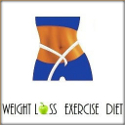-
For Mothers: Baby Nutrition Guide
Wednesday, April 16th, 2025by Lisa Young, Nutritional Counselor
It is generally accepted medical knowledge that an infant should be breastfed until the age of six months, preferably longer. Baby nutrition from breast milk is the single most important source of vitamins and minerals for infants.
 Breastfeeding provides nutrients in the right amounts that are easily digestible. Mother’s milk is also full of important antibodies that form the foundation of a healthy immune system for babies.
Breastfeeding provides nutrients in the right amounts that are easily digestible. Mother’s milk is also full of important antibodies that form the foundation of a healthy immune system for babies.Researchers have discovered that babies which are breastfed exclusively are at less risk of developing stomach and respiratory infections. Unfortunately, this is not the case with infants that have been mostly bottle-fed.
Infant health issues like vomiting and constipation can also be reduced when breast milk is the main source of infant nutrition. It is even believed that potential future health problems like allergies, diabetes and obesity can be minimized by breastfeeding one’s baby.
Breast milk is known to contain important substances which support the essential development of a baby’s brain, eyes, central nervous system and stomach lining. Key digestive enzymes vital to breaking down baby nutrients are also contained in breast milk.
Diet for Breastfeeding Mothers
When breastfeeding her baby, a woman must be very careful about what she eats. Breastfeeding a baby requires approximately 500 calories per day, which is why proper nutrition while breastfeeding is very important.
While some of the fat stores built up during pregnancy are consumed during breastfeeding, they are not enough to provide all the nutrition the baby will need. A woman that is feeding a baby from the breast will often become quite hungry, and should respond by eating healthy meals that provide the calories her body requires.
The best diet while breastfeeding is one which features foods of high nutritional value. Fat and sugar consumption should be minimized, while the consumption of calcium, protein, and vitamins A and C should be increased.
Ensuring Proper Nutrition for Babies
While a balanced diet for baby nutrition should be followed, a woman may not have the time to prepare nutritious meals each day. In such cases, healthy meals delivered can be a way to get the nutrition one needs without spending time in the kitchen.
Researchers believe that the only nutrient lacking in breast milk which is needed by babies is vitamin D. Dietitians for new mothers often suggest that 10 milligrams of a vitamin D supplement should be taken once or twice per day.
Drinking enough fluids is also very important, so women who are breastfeeding should drink plenty of pure mineral water. Tea and coffee should be avoided, as the caffeine contained in them can be transferred to the baby through breast milk.
Mothers should keep in mind that baby nutrition is influenced directly by the type of food they consume themselves, so a balanced diet is vital to raising a healthy baby. Proper eating habits should be adopted before the baby is born, which is why good nutrition during pregnancy plays a key role.
The reason breastfeeding is so important is that it passes key antibodies on to the baby. For example, mother’s milk contains several anti-infective factors including lactoferrin (which inhibits the growth of intestinal bacteria), and immunoglobulin A for protection against microorganisms.
Baby Nutrition: When to Introduce Solid Foods
In addition to healthy breast milk or infant formula, here is a list of solid foods mothers can introduce to their baby’s diet at each successive stage of development:
- At 4 to 6 months, single-grain fortified cereals. These will give your baby iron, an important nutrient that babies need from around six months of age.
- At 6 to 8 months, pureed or strained fruits and vegetables. Examples include bananas, pears, apples, apricots, prunes, avocados, carrots, peas, potatoes and squash.
- At 8 to 10 months, mashed fruits and vegetables. You can also include small amounts of yogurt, cottage cheese, or any pasteurized cheese. Eggs are OK, too.
- At 10 to 12 months, your baby can eat most of the foods you are eating. Make sure all foods are cut up or mashed properly to allow for safe chewing and swallowing.
Unless you have a strong family history of allergies, the American Academy of Pediatrics says it is no longer necessary to avoid eggs, wheat, fish or peanut butter until after one year of age (although many pediatricians are still cautious about peanuts and shellfish due to the strong allergic reactions sometimes associated with them).
Do not give your baby whole cow’s milk or honey until your baby reaches one year of age or older. In particular, honey can cause a dangerous illness known as infant botulism.
The American Academy of Pediatrics advises that infants be exclusively breastfed for at least six months, although some babies may appear ready to eat solid foods earlier than that. A good rule of thumb to follow: Wait for a doubling of the baby’s birth weight (reaching a weight of approximately 15 pounds) as well as the baby being at least 6 months old before starting solid foods.
(published July 18, 2011)


